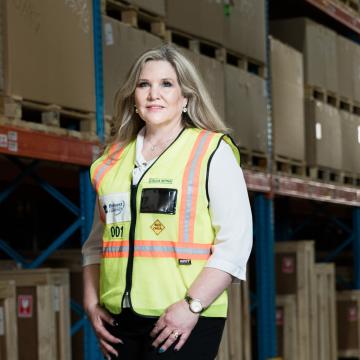The South African Reserve Bank (SARB) recently released its latest estimate for GDP growth for this year, and into 2024 and 2025. The estimates should serve as another clear indication that the government’s ideological and policy choices have caused much damage to the economy and society – and should it continue down this path, it is probable that real investment and job creation will remain a long way off.
The SARB expects GDP to grow by only 0.3% for 2023, 0.7% for 2024, and 1% for 2025. The main barrier to growth is higher-than-initially-expected load-shedding, which acts as an effective hard cap on growth. Should economic activity pick up, Eskom’s power fleet cannot keep up, with the consequence that load-shedding is implemented – a vicious cycle if ever there was one. Those businesses and communities that can ‘state-proof’ themselves even partially, in terms of building their own electricity generation and storage capacity, will set themselves up much better for what may lie ahead.
Along with load-shedding (unlikely to be resolved from the Eskom side any time soon), the SARB is also concerned about the continued decline in service and reliability on the part of Transnet. Miners, farmers, and countless other businesses across various supply and value chains are forced to use road freight, increasing their costs and exposing themselves to possibly dangerous roads that have crumbled due to overuse and a lack of maintenance.
With its latest interest rate hike of 25 basis points, the SARB possibly signalled that, while it will continue with a hiking cycle, it will perhaps do so in smaller increments. This could alleviate at least some of the pressure on businesses and consumers. But, higher inflation is probably here to stay for the time being, especially given that South Africa is more exposed to imported inflation, and its own manufacturing base is steadily being diluted and undermined by persistent power outages.
Globally, the reopening of the Chinese economy could be a saviour for South African exporters and commodities – if they can find alternatives to transport materials and goods other than those routes provided by Transnet. The mining and agriculture sectors have proven to be two of the few bright lights in the economic landscape – their resilience and future performance will depend on how well they can ride the prolonged period of higher load-shedding stages that they are now faced with.
The SARB’s 0.3% GDP growth estimate reinforces the fact that South African businesses and citizens need to prepare accordingly for yet more tough times ahead. There are pockets of opportunity and possible growth, but great winds of change are unlikely to emanate from the bureaucratic centres of power any time soon.
Without sustained GPD growth of around 3-4%, South Africa’s unemployment crisis will likely persist, if not worsen, over the short to medium term. Possibly the best prospect for real growth will only be realised after the 2024 general election; at this point in time, it appears the governing ANC lacks both the imagination and ability to deal with factional interests and undermining, to implement the kinds of reforms that the country needs to see meaningful economic growth takes off.










